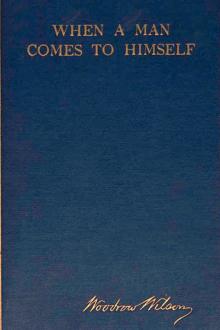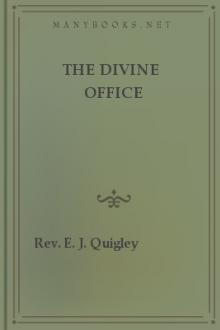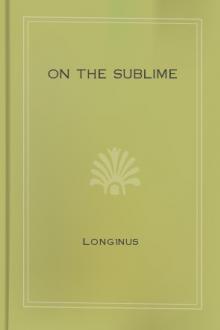Genre Philosophy. Page - 3

s the distinctionbetween eating and digestion.
The following definition of teaching, contributed by a former statesuperintendent of schools, is rich in suggestion:
"Teaching is the process of training an individual through theformation of habits, the acquisition of knowledge, the inculcation ofideals, and the fixing of permanent interests so that he shall becomea clean, intelligent, self-supporting member of society, who has thepower to govern himself, can participate in noble enjoyments, and hasthe desire and the courage to revere God and serve his fellows."
Teaching does not merely consist of an inquisition of questions withappropriate answers thrown in; it surely is not mere reading; nor can itbe mistaken for preaching or lecturing. These are all means that may beemployed in the process of teaching. And they are important, too. Wehave been cautioned much, of late years, not to lose ourselves in theprocess of doling out facts--but that rather we should occupy

The practicabilityof every reform is determined absolutely and always by "thecircumstances of the case," and only those who put themselves intothe midst of affairs, either by action or by observation, can knownwhat those circumstances are or perceive what they signify. Nostatesman dreams of doing whatever he pleases; he knows that it doesnot follow that because a point of morals or of policy is obvious tohim it will be obvious to the nation, or even to his own friends;and it is the strength of a democratic polity that there are so manyminds to be consulted and brought to agreement, and that nothing canbe wisely done for which the thought, and a good deal more than thethought, of the country, its sentiment and its purpose, have notbeen prepared. Social reform is a matter of cooperation, and if itbe of a novel kind, requires an infinite deal of converting to bringthe efficient majority to believe in it and support it. Withouttheir agreement and support it is impossible.

large! I resolved to begin at the beginning and study some of their doings before I probed their reason. Fate threw in my way a connection by marriage, a naval man, who on board his ship at Bombay had had a visit from a wandering Hindu who offered to show a sight the sahibs could never have seen before. He agreed, and standing a great brass vessel of water on the deck the man stood off at a great distance and in the sight of many people beckoned, and the water rose snake-like in the jar and crept over the edge and slipped down the side a bright snake of water, and so along the deck until he halted it with a sign, released it with a beckon, and so on until it crept to his feet and there dissolved into a pool of common water, leaving the jar empty.
I asked, "How did you explain it?" and the captain answered, "I couldn't. It couldn't have happened, but all the same he made a lot of us see it."
"But that kind of mass-hypnotism could be almost as wonderful as the reality," I suggested. "A really ter

s valuable because it clearly shows what really is the origin of the idea of Space. It proves that the idea of Space is a representation of one condition of our Activity. It is because the primary work of Thought is to represent the forms of our dynamic Activity that we find the idea of Space so necessary and fundamental.
But it will perhaps be argued that our ordinary sensations carry with them a spatial meaning and implication, and that indirectly, therefore, our sensations do supply us with the idea of Space. It will readily be agreed that if this is so of any sensations it is pre-eminently true of the sensations of vision and touch. Indeed, it will perhaps not be disputed that the ordinary vident man derives from the sensations of vision his most common spatial conceptions. We propose, therefore, to inquire very briefly how the character of spatial extension becomes associated with the data of Vision.
The objects of Vision appear to be displayed before us in immense multitude, each

ne was to appear not only for an appointed work, but for an appointed period: "He shall give you another Comforter, that he may abide with you forever"--eis ton aiõna. If we translate literally and say "for the age," it harmonizes with a parallel passage. In giving the great commission, Jesus says: "And lo, I am with you alway, even unto the end of the age." Here his presence by the Holy Ghost is evidently meant. The perpetuity of that presence is guaranteed, "with you all the days"; and its bound determined, "unto the end of the age." Not that it need be argued that he shall not be here after this dispensation is finished; but that there is such a thing as a temporal mission of the Holy Spirit does seem to be implied. And a full study confirms the view. The present is the dispensation of {16} the Holy Ghost; the age-work which he inaugurated on the day of Pentecost is now going on, and it will continue until the Lord Jesus returns from heaven, when another order wil

pifies the pre-natal stage of life.Lauds, the office of dawn, seems to resemble the beginnings ofchildhood. Prime recalls to him youth. Terce, recited whenthe sun is high in the heavens shedding brilliant light, symbolisesearly manhood with its strength and glory. Sext typifies matureage. None, recited when the sun is declining, suggests man in hismiddle age. Vespers reminds all of decrepit age gliding gentlydown to the grave. Compline, night prayer said before sleep,should remind us of the great night, death.
CHAPTER II.
SHORT HISTORY OF DIVINE PRAISE IN GENERALAND OF THE BREVIARY IN PARTICULAR.
From all eternity the Godhead was praised with ineffable praise by theTrinity--the three divine Persons. The angels from the first moment ofthe creation sang God's praises. _Sanctus, sanctus, sanctus, DominusDeus, Sabaoth. Plena est omnis terra gloria ejus_ (Isaias vi. 3).
Cardinal Bona writes

But Greece was not perfect. Her poetical and religious ideals were far above her practice; therefore she died, that her ideals might survive to ennoble coming ages.
Rome, too, left the world a rich inheritance. Through the vicissitudes of history her laws and ordered government have stood a majestic object-lesson for the ages. But when the stern, frugal character of her people ceased to be the bone and sinew of her civilization, Rome fell.
Then came the new nations of the North and founded a more permanent society. The base of Greek and Roman society was the slave, crushed into the condition of the wretches who "labored, foredone, in the field and at the workshop, like haltered horses, if blind, so much the quieter." The base of the new society was the freeman who fought, tilled, judged and grew from more to more. He wrought a state out of tribal kinship and fostered an independence and self-reliance which no oppression could destroy. The story of man's slow ascent from savagery through barb

ceiving that it is something unusually lively, kicksand crows most lustily, to the unspeakable delight of all thechildren and both the parents: and the dinner is borne into thehouse amidst a shouting of small voices, and jumping of fat legs,which would fill Sir Andrew Agnew with astonishment; as well itmight, seeing that Baronets, generally speaking, eat prettycomfortable dinners all the week through, and cannot be expected tounderstand what people feel, who only have a meat dinner on one dayout of every seven.
The bakings being all duly consigned to their respective owners,and the beer-man having gone his rounds, the church bells ring forafternoon service, the shops are again closed, and the streets aremore than ever thronged with people; some who have not been tochurch in the morning, going to it now; others who have been tochurch, going out for a walk; and others--let us admit the fullmeasure of their guilt--going for a walk, who have not been tochurch at all. I am afraid the smart serv

ecause he did not know them, but because he estimated them correctly. He may have suffered, as we suffer, from critics who, of all the world's literature, know only "the last thing out," and who take that as a standard for the past, to them unfamiliar, and for the hidden future. As we are told that excellence is not of the great past, but of the present, not in the classical masters, but in modern Muscovites, Portuguese, or American young women, so the author of the Treatise may have been troubled by Asiatic eloquence, now long forgotten, by names of which not a shadow survives. He, on the other hand, has a right to be heard because he has practised a long familiarity with what is old and good. His mind has ever been in contact with masterpieces, as the mind of a critic should be, as the mind of a reviewer seldom is, for the reviewer has to hurry up and down inspecting new literary adventurers. Not among their experiments will he find a touchstone of excellence, a test of greatness, and that test will seldom

ection.
A second condition of the spiritual life has been expressed in the precept, reiterated in many religions, by many experts in things relating to the life of the soul: "Live as if this hour were thy last." You will recall, as I pronounce these words, the memento mori of the Ancients, their custom of exhibiting a skeleton at the feast, in order to remind the banqueters of the fate that awaited them. You will remember the other-worldliness of Christian monks and ascetics who decried this pleasant earth as a vale of tears, and endeavored to fix the attention of their followers upon the pale joys of the Christian heaven, and you will wonder, perhaps, that I should be harking back to these conceptions of the past. I have, however, no such intention.
The prevailing attitude toward the thought of death is that of studied neglect. Men wish to face it as little as possible. We know, of course, what the fate is that awaits us. We know what are the terms of the compact. Now and again we are